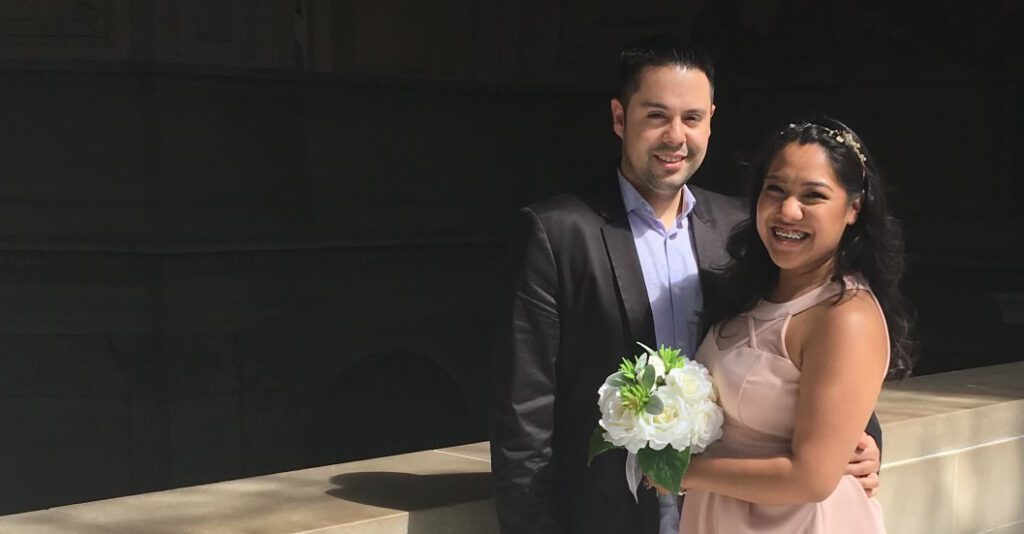
Before they met in 2015, Eric and Patricia each had complicated relationships with the U.S. immigration system. After falling in love and getting married, the couple would again have to navigate the complex system to prove their love to immigration officials.
Eric and Patricia bonded over their shared roots and values.
Eric and Patricia’s story begins at a grocery store in Burlingame, California. They took advantage of little moments during overlapping shifts at Lunardi’s to chat about details of their lives that they seldom shared with anyone else. Intimate conversations about their childhoods, families, and lived experiences brought the two closer together.

“She was one of the few people I really bonded with,” said Eric, a first-generation Mexican American who grew up in San Francisco’s Mission District.
Eric’s dad was undocumented, and holding his family together on a limited income was challenging. When he was a child, Eric and his mom lived in their family’s small hometown in Mexico while his dad remained in the U.S. to work. They were separated for over a year.
Then in 1986, President Reagan signed a sweeping immigration bill into law, granting amnesty to nearly 3 million undocumented immigrants — including Eric’s dad. With this newly gained permanent resident status, their family was able to reunite and stay together in the Bay Area.
Despite their improved status, Eric’s parents continued to struggle. At a young age, Eric helped his parents navigate the U.S. system, translating government documents and interpreting for them at medical and social security appointments. These experiences allowed Eric to deepen his connection to his heritage and better understand Patricia’s own immigration story.
Patricia takes pride in how far she’s come.
Patricia was born in the state of Hidalgo, Mexico. Her family of 5 often struggled to make ends meet. She recalls her mom having to borrow money to buy tortillas so they would have enough to eat. When she was 3 years old, her dad migrated to the U.S. in search of opportunities to provide for the family. After years of separation, the rest of Patricia’s family crossed the border to join her dad in California.
“We were getting out of something worse,” said Patricia, reflecting on her treacherous journey north at 10 years old.
Knowing the stigma against undocumented immigrants, Patricia safeguarded her immigration status and focused on her studies. Her family was living paycheck to paycheck, so many opportunities seemed out of reach. That is, until Patricia gained Deferred Action for Childhood Arrivals (DACA) status before graduating high school in 2013.
“After I got DACA, a lot of things opened up,” Patricia said. “Before DACA, there wasn’t this hope of going to college or even getting a driver’s license.”
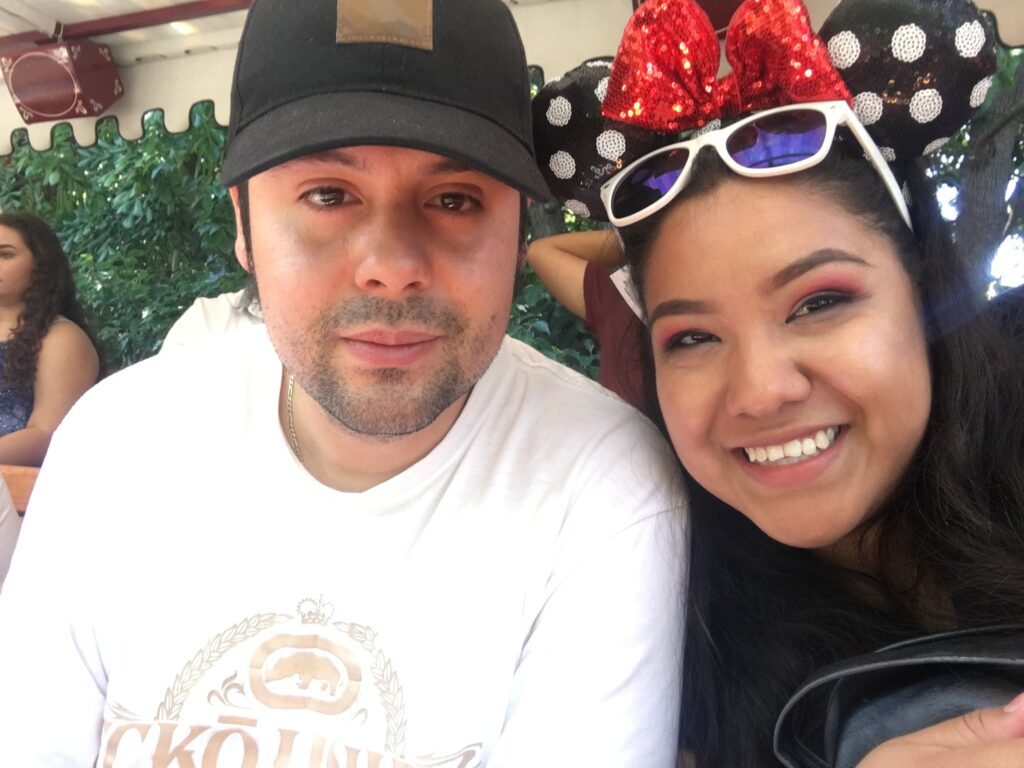
With work authorization and protection from deportation, Patricia was able to work legally, obtain scholarships, and graduate from San Francisco State University without any debt. After leaving her job at Lunardi’s, she pursued a career in the financial industry, where she continues to work today.
By early 2017, Eric and Patricia had started making plans for marriage.
Around the same time, the Trump administration was moving to end the DACA program. The constant attacks on DACA have put its more than 800,000 recipients in a state of limbo and uncertainty.
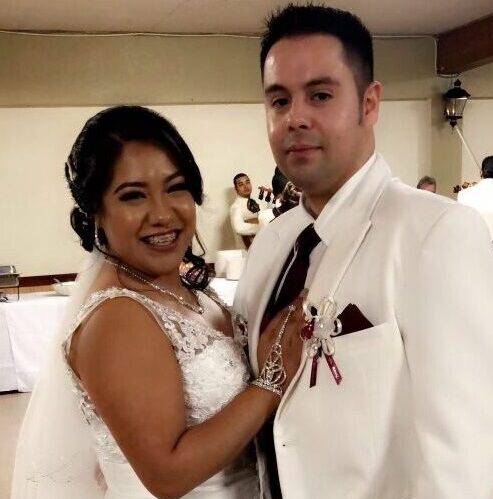
“Eric was like, ‘Why don’t we just get married? We were already going to do it, so why not just speed up the process?’” Patricia said. “So… we got married!”
The couple had an intimate City Hall wedding in 2017, then a larger church ceremony with their extended families in early 2018 — both filled with love, joy, and uncontrollable nervous laughter.
Building a life together is not always easy, but a convoluted immigration system — and an unprecedented pandemic — added more uncertainty to their future.
The married couple turned to IIBA for legal support. IIBA helped Eric and Patricia navigate what would turn out to be a 3-year legal journey for Patricia to become a permanent resident.
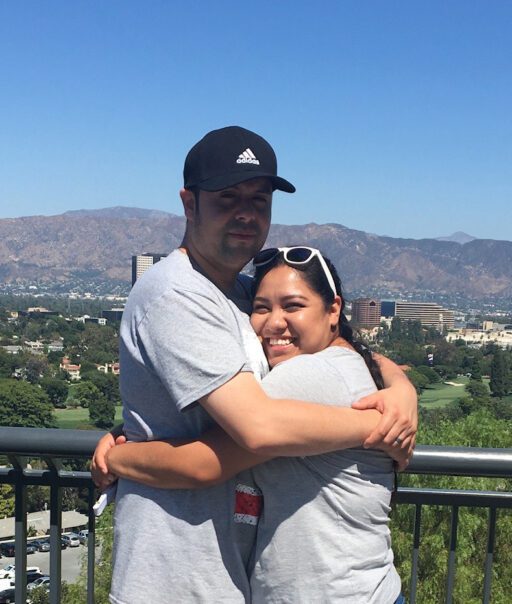
Patricia was required to travel to the U.S. Consulate in Juarez, Mexico to complete her green card interview. Though originally scheduled for April 2020, their consular appointments were canceled due to COVID-19 — just a few weeks before they were set to fly out to Mexico.
With the consulate shut down, Eric and Patricia spent the first year of the pandemic anxiously waiting for an update. In June 2021, they were finally able to move forward with the process in Juarez: a medical exam, a paperwork review, and a final interview with officials.
“We were one of the first people there, but Patricia was one of the last to exit, so I was really worried,” remembered Eric, who waited outside the consulate in the scorching heat for 4 hours.
A lot was at stake — Patricia could be prohibited from reentering the U.S. if the interview did not go well. Thankfully, her application was approved a week later, and she was able to return home on a new visa.
When Patricia’s green card finally arrived, all they felt was relief.
As a permanent resident, Patricia is now able to live her life more fully. Before getting her green card, she was barred from traveling internationally and securing loans. Now, all those things and more are possible.
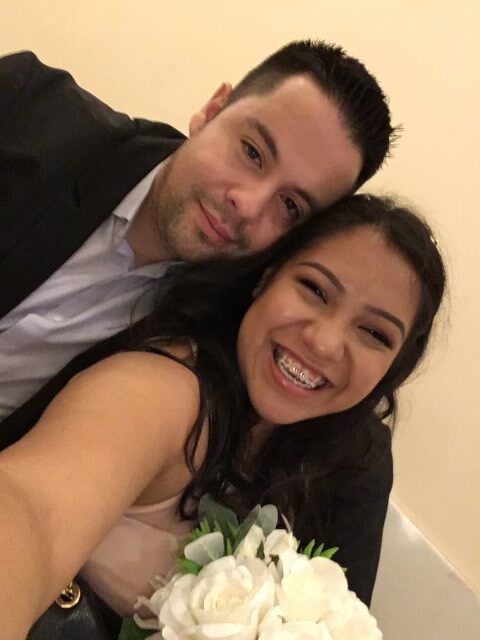
“That’s a milestone that we completed together, and it’s kind of like, what’s next?” said Patricia. “We have a lot of plans.”
With the extensive green card process behind them, the couple plans to focus on their individual careers, traveling, buying a house, and growing their family. And after witnessing firsthand how tough and stressful the process is, Eric and Patricia are eager to pay it forward and help others in their community.
“IIBA has been a big part of our relationship and our lives now,” said Patricia. “You definitely helped us open doors for a lot of people. We really appreciate you guys!”
